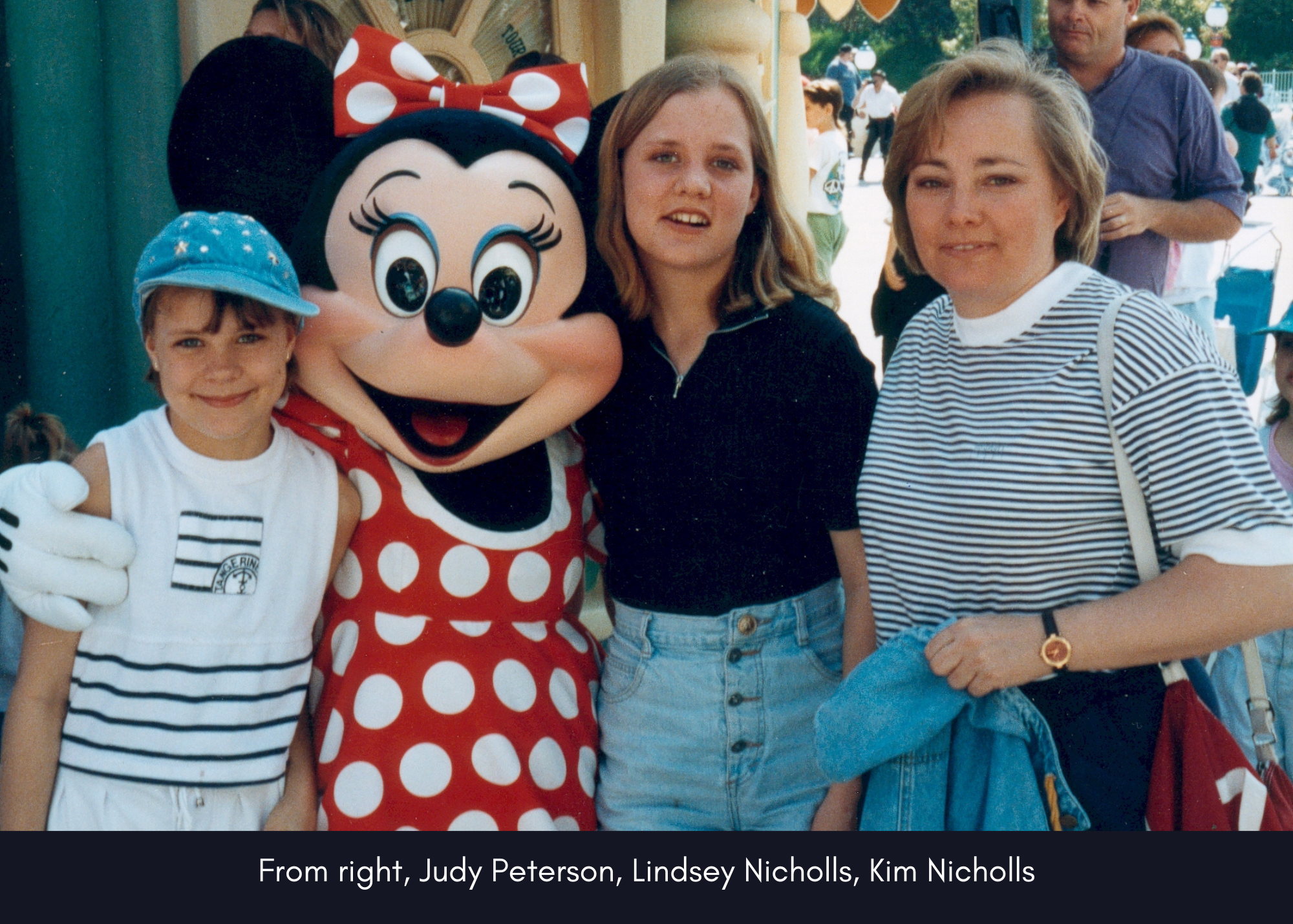A mother's 30-year search for her missing daughter
While dozens of commuters swerved to avoid five baby ducks and their mother frantically shepherding them across the highway, I pulled over and sobbed.
It wasn’t the thought of how close I had come to wiping out this little family; it was the bravery and determination of the mother that hit me so hard. She could have flown up to safety, but she risked her life to protect her babies.
That’s what mothers are supposed to do. That's what I was supposed to do.
My 14-year-old daughter Lindsey Nicholls vanished from the Comox Valley, B.C., 30 years ago, and I have spent nearly half of my life searching for her.
This tragedy has become part of my identity: I'm the mother of a missing child.
People who learn that my daughter Lindsey vanished all respond the same way. "Oh my God," they say, and shake their heads. “I can’t even imagine."
Of course. How could you?
Who would want to imagine calling the police to report their teenage daughter missing?
Who could visualize going around town with missing posters and a roll of tape, tearfully asking permission to post them, or walking countless hours around Vancouver, asking kids on the street if they had seen the blonde girl in the photo.
Who would want to imagine waiting for results of a forensic excavation, or cadaver dog search and the agonizing jumble of hope and dread when the phone rings, or a police car passes by?
Under those circumstances, who would know what to say, when asked about their children.
I’ve watched my younger daughter Kim grow from a little 11-year-old athlete, into a beautiful 41-year-old woman and wonderful mother. Unfortunately, each of her milestones, driver’s license, graduation, and the birth of my grandson, were tainted with the thoughts that this should be my second time.
It's impossible to describe having so much love for a child with nowhere to channel it, living on an emotional roller coaster, day in and day out. For weeks. For months. For decades.
If someone had told me when Lindsey first disappeared that I would still have no idea what happened to her 30 years later, I surely would have said “Oh my God. I can’t even imagine.”
This remains my reality, and it's agonizing.
I've watched as technology evolved, desperately wishing that cell phones, social media and AMBER Alerts existed in 1993 when Lindsey disappeared.
I have learned to invent my own hooks to entice TV and newspaper coverage and how to handle questions from even the most insensitive reporters. Lindsey's case has been covered in national magazines and on national news shows.
There have been true crime podcasts and a chapter in a book about cold cases. And still no answers.
I have worked so hard to develop connections with investigators, RCMP senior staff, lobbyists and government officials, only to see them retire.
I pushed for change, lobbying the federal government for amendments to the National DNA Databank that would allow families of missing persons to submit DNA to the file that previously only included genetic markers taken from crime scenes, or convicted offenders.
It took 18 years of stuffing envelopes, phone calls, trips to Ottawa and meetings with cabinet ministers before the Missing Persons and Found Human Remains index was finally included within the legislation.
I was in Ottawa in 2018 to witness the passing of Bill C-240, which they named Lindsey's Law. This made it possible for a family, such as mine, to submit DNA that could be compared against the genetic markers of people whose remains had been found, but whose identity was unknown.
Since then, at least 40 DNA profiles from found human remains have been matched with searching families, giving them answers they so desperately needed. Sadly, my family is not among them, and Lindsey's disappearance remains a mystery.
As the years have passed, I've watched as my fears changed. Initially, I was terrified Lindsey was living on the street in Vancouver. I've cycled through many more nightmares over the 30 years since she disappeared, experiencing each one of them in my heart, mind and body. Even though I don’t want to imagine what Lindsey went through, I want an answer. Now, as I'm in my late 60s, I'm terrified that I will die without ever knowing what happened.
Someone out there knows something. Someone saw something, or heard something but at the time, was unable to come forward. Someone who is now an adult with children of their own might finally understand what I have experienced.
I am asking that person to come forward, to help end our suffering and to help bring justice to whoever was involved in Lindsey’s disappearance. I fear that other families are still not safe. I don’t want anyone else to experience the pain I have endured.
Over time I have often thought about that mother duck and her babies on the highway. I could not protect my own daughter 30 years ago, but I have done everything I can to find her and to help other families. And I will continue.
If you know anything at all about the disappearance of Lindsey Nicholls, call Comox Valley RCMP at 1-250-338-1321, or the Missing Children Society of Canada 1-800-661-6160. Even the smallest detail could be the puzzle piece we need.

